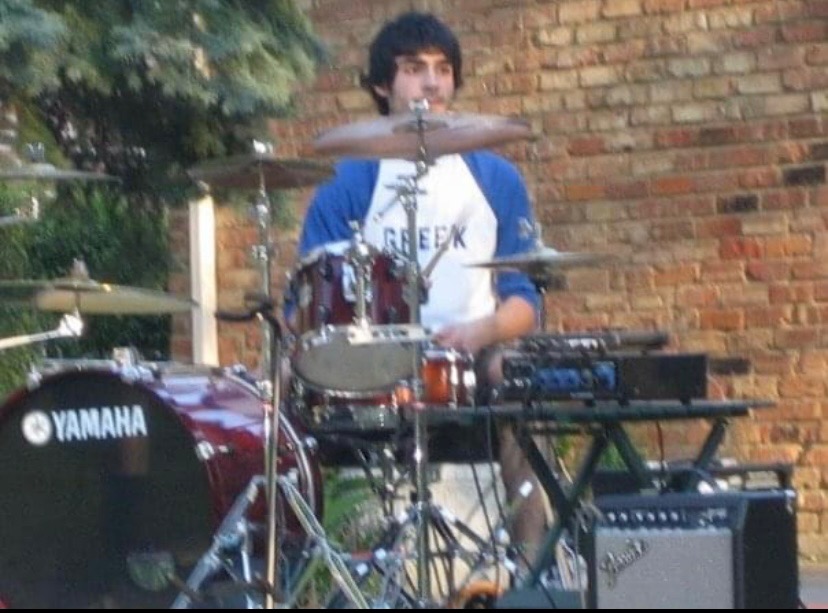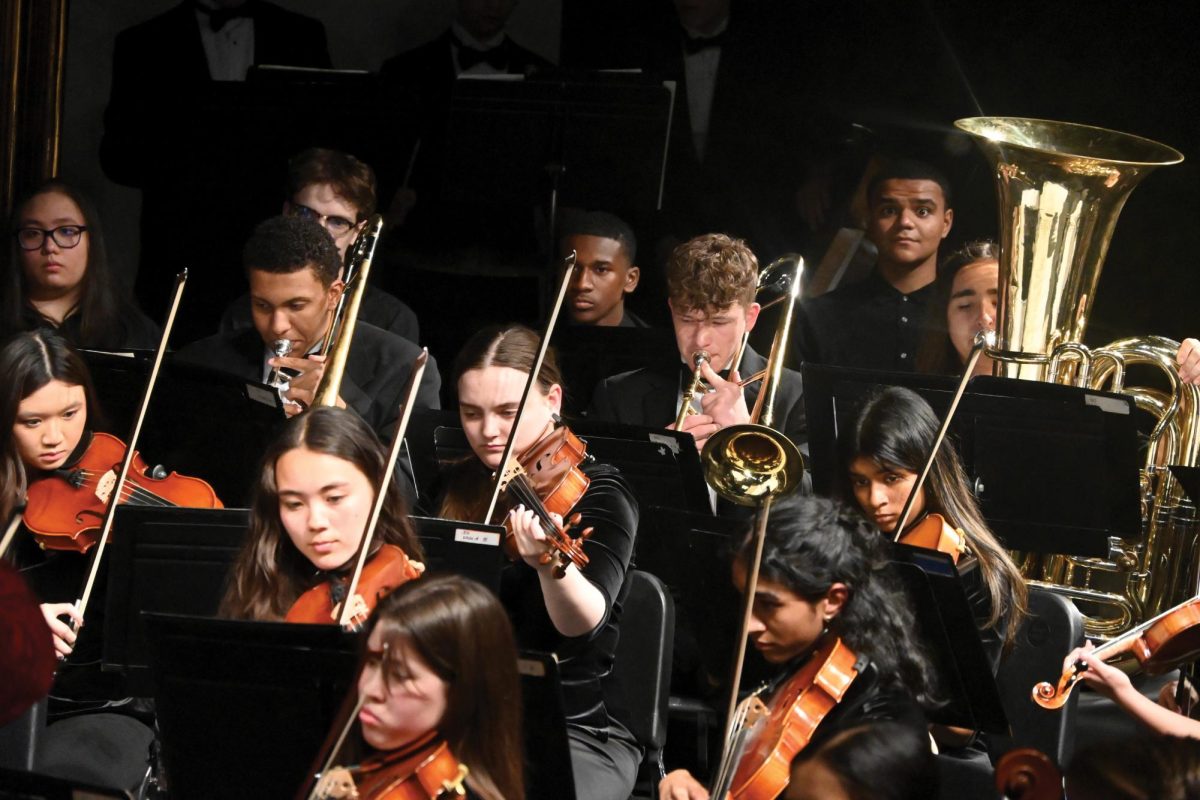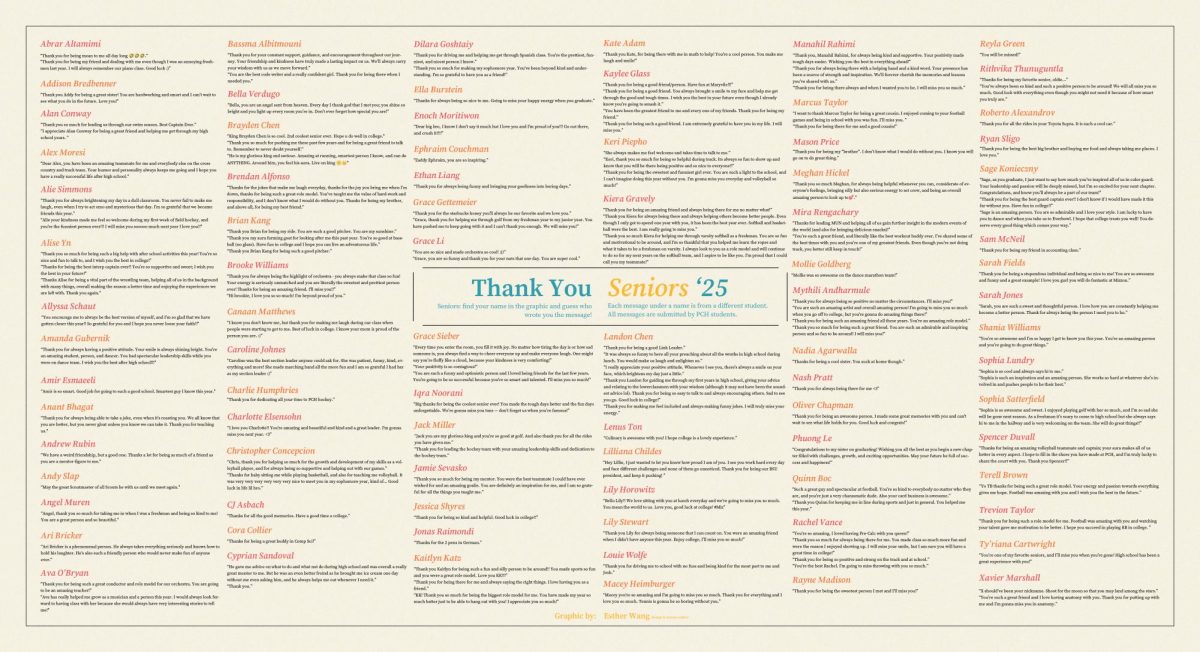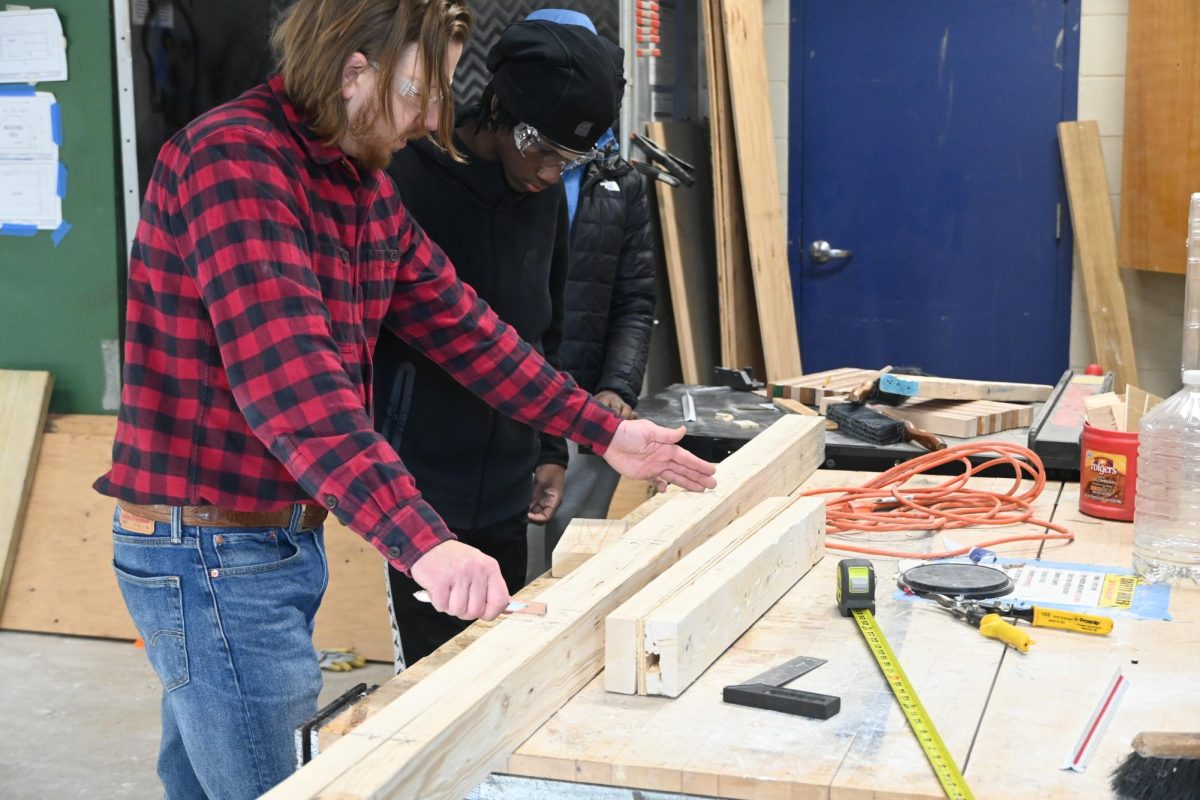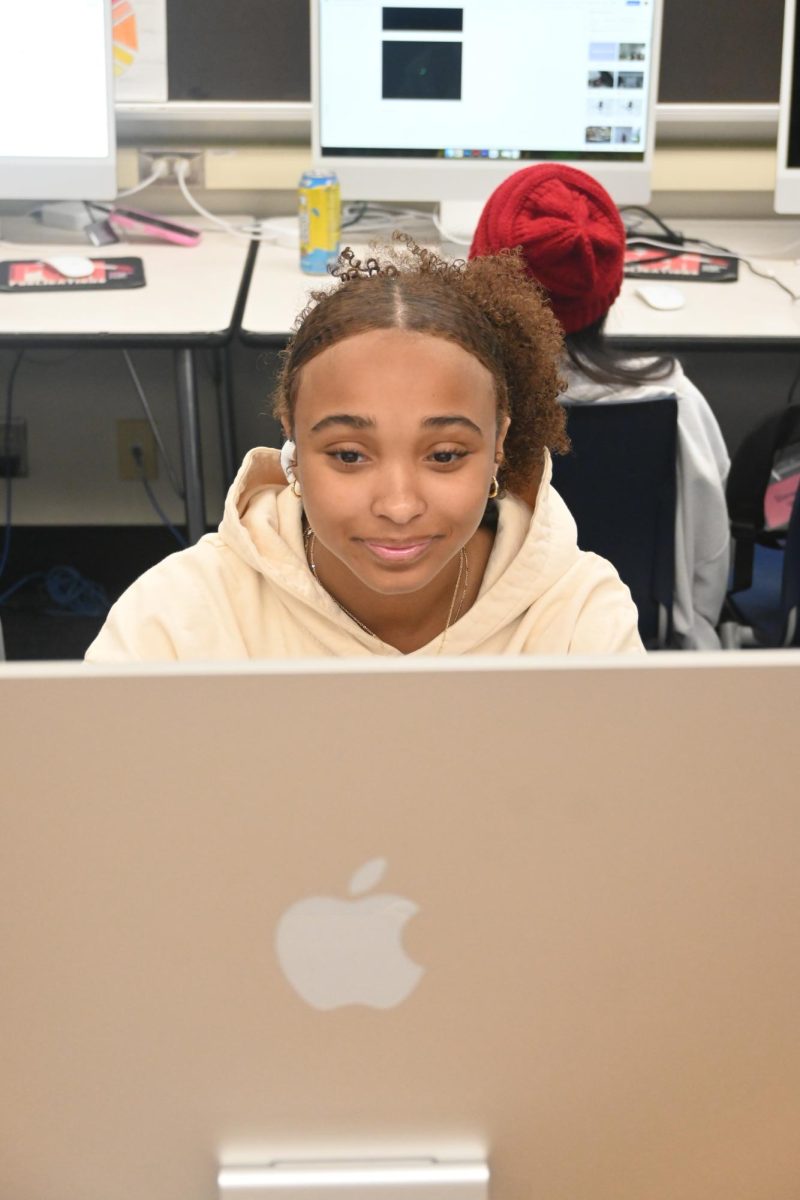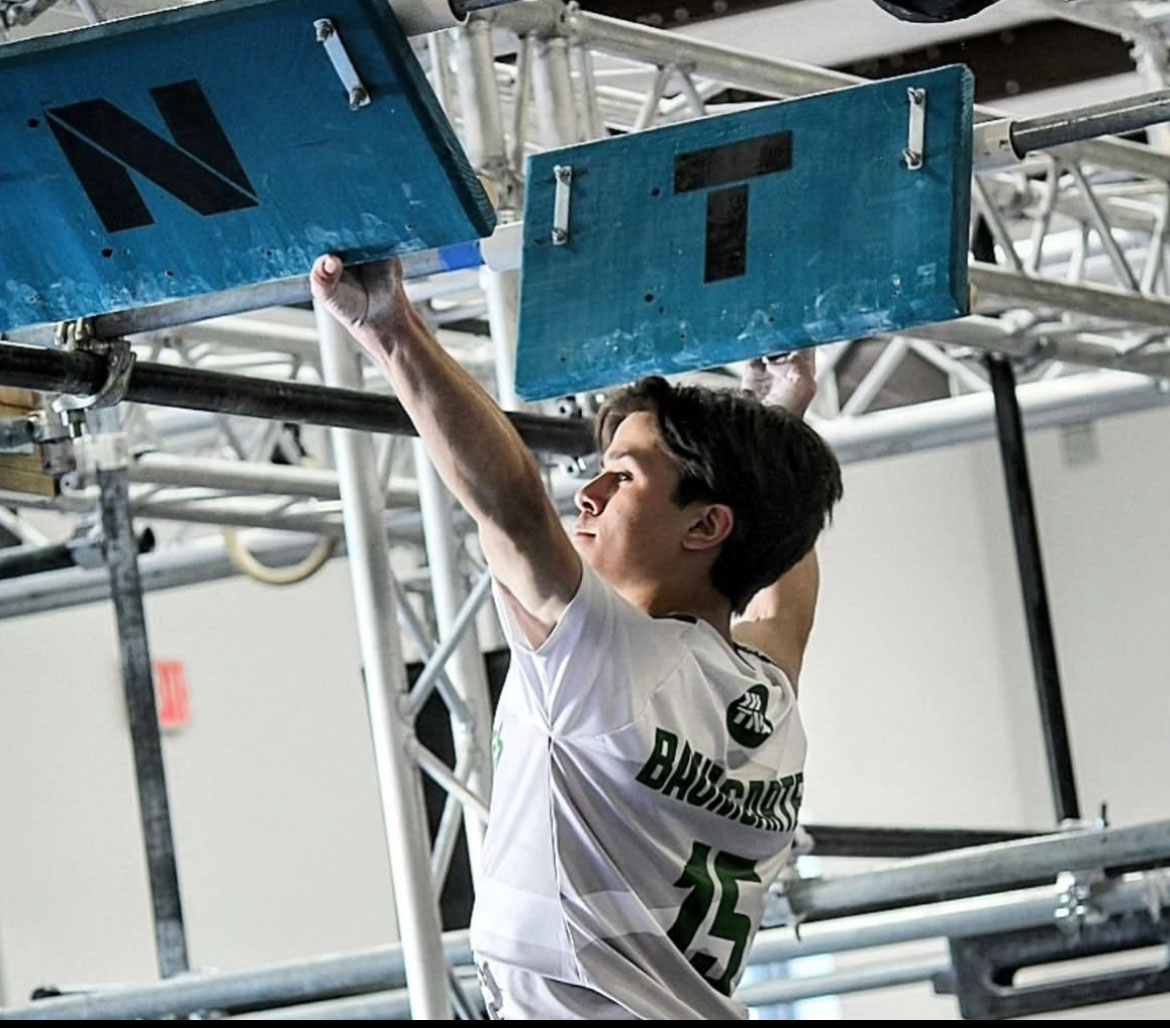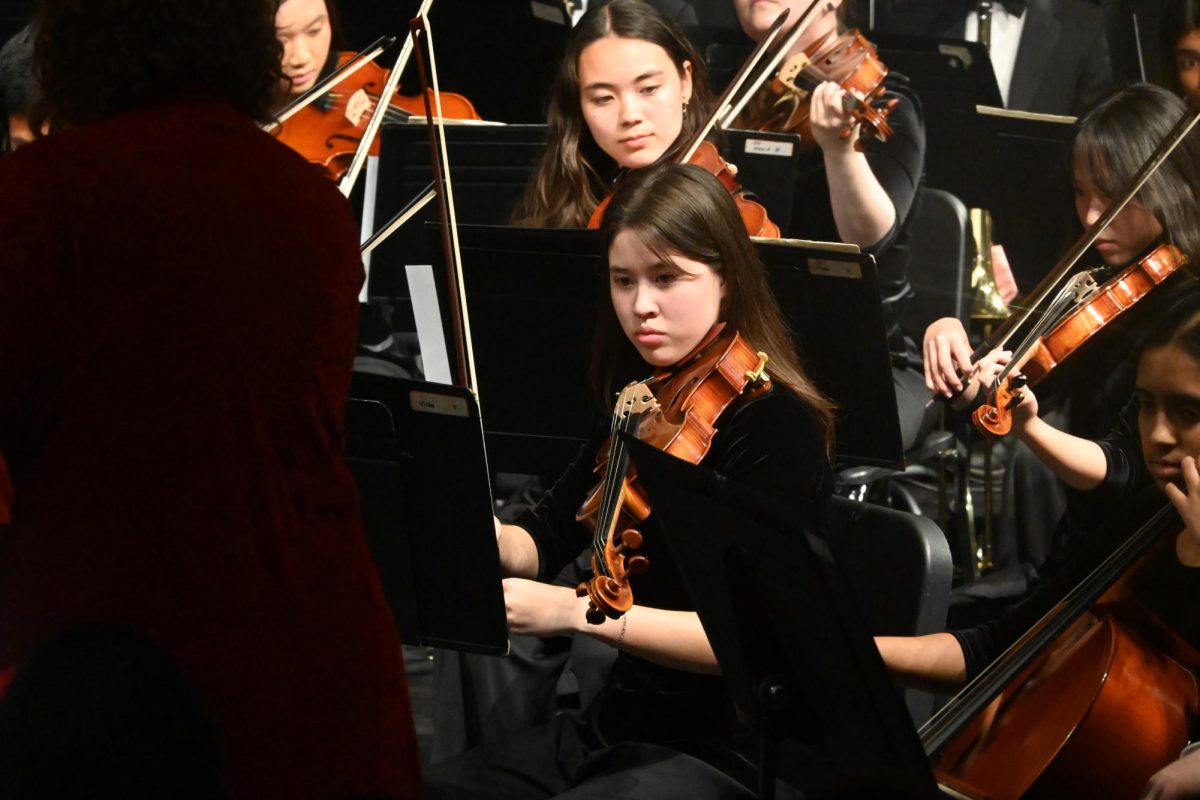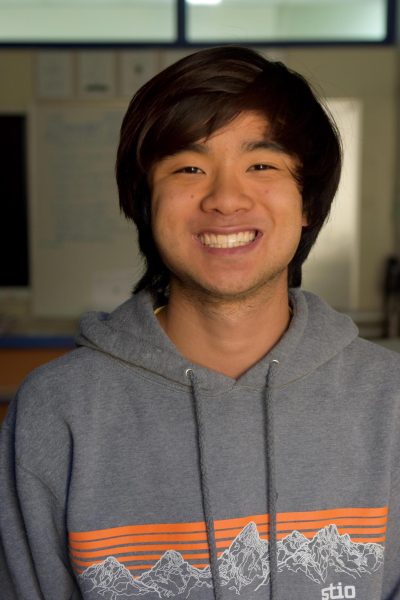Math and computer science teacher Peter Papulis has always been a builder. Although Papulis builds complex computer algorithms and wooden machines, he most importantly builds great relationships with his students. Junior, Amir Esmaeeli, says Papulis takes extra steps to facilitate good connections in his AP Computer Science A class.
“He has a good bond with all his students, anytime you need questions, he’s always willing to help and go the extra mile even to solve questions that probably he’s never seen before,” Esmaeeli said.
Papulis not only goes above and beyond building relationships with students, but also facilitates a great learning environment. Junior, Anant Bhagat, says Papulis’ teaching style has impacted his overall view of computer science.
“The way he goes about teaching the class, the opportunities he presents, has shown me some more intricate things about computer science and things I enjoy a lot more,” Bhagat said.
One of the driving forces behind Papulis’s pursuit of a career in education was a class he took as a senior at Parkway West.
“I had a really good Intro to Calc class and teacher. And it was in that class for a lot of math, things clicked. I was a fine math student, but that class I just really liked,” Papulis said. “I also wanted a career that was more service-based. So that and the class kind of put together made me want to say you know, I think it’d be cool to try teaching.”
Despite Papulis being influential in many young people’s lives, he wasn’t always dead set on teaching.
“My biggest obstacle was really my first couple of years teaching. I just had, for a couple of years, really rough classes,” Papulis said. “So much so that I considered going back to school and going into engineering.”
Even with hardship in his first years of teaching, the same place that inspired him to be a teacher inspired him to stay a teacher.
“ I worked at West for my first few years, and they had really good teachers that I could talk to and learn from,” Papulis said. “I think just gaining experience and trying new things with students. I knew things were going to get better.”
Math Department Chair, Kurt Lehman, sees Papulis’s innovation even later in his career.
“I think he definitely thinks outside the box. A lot of math teachers kind of teach the same way. And he just approaches concepts differently, which is really cool,” Lehman said.
Papulis has not only brought a sense of creative thinking to the math department but has also helped the math department segway into teaching computer science after long-time computer science teacher, Karen Schwent, retired in 2022.
“Papulis has always done more stuff with computers than the rest of us. When we needed data for algebra classes, or classes in general, Papulis helped us and I think he did a lot more outside of school just on his own and creatively. So the math teachers were able to lean on him to teach computer science,” Lehman said.
Once he took over the AP Computer Science classes he was able to implement his unique style of teaching.
“If we’re learning a new topic, like an array, then he would try to do all tons of applications of arrays, maybe make a small game, or try small assignments and projects that really help us understand the structure,” Bhagat said.
Papulis originally got into coding through a movie.
“I was watching the movie ‘Big’ with Tom Hanks and there’s this scene at the beginning where he’s playing this computer game like ‘Dungeons and Dragons,’ except you type what you want to do. I thought that was really cool and I wanted to make something like that,” Papulis said.
Papulis got inspired to code games, yet he doesn’t like to play them.
“I really, really like to code and I like to make games. But I really don’t like playing video games. I get bored really, really, quickly,” Papulis said.
One of Papulis’s most innovative creations is the new automated detention system, a coded algorithm that gives students dentition automatically based on whether they have an unexcused absence registered on Infinite Campus. The motivation behind Papulis making this program was the desire to create a more efficient system to help the assistant principals.
“Dr. Upadhyay was giving a presentation and during her presentation, she mentioned what she had to do in order to keep track of detentions,” Papulis said. “To me, it seemed like a lot of menial, just just grunt work, looking up into the campus doing a whole bunch of copying and pasting.”
Through Papulis’ Previous coding experience with other projects, he decided to use his talents to make the automated dentition software.
“I had recently done a project for Mr. Lehmann and Mu Alpha Theta, where I took a lot of data, connected it with Google Sheets and Google email. And so I met with her and said, ‘Hey, I might have a way to help you out, make things a little more automated,’” Papulis said.
Along with creating programs for coding, Papulis also likes to create things with his hands.
“I like building things with wood, nuts, and bolts. Recently built a functional trainer cable machine for exercising with pulleys and weights,” Papulis said.
For Papulis, building isn’t always about making things more efficient, but it also allows him to pursue his hobbies.
“In college, I played drums and guitar with a variety of people. I thought the drums were really cool and in college built my own little drum set, with a foot pedal and strings,” Papulis said.
At the end of the day, even though Peter Papulis is a strong builder in the classroom, on the computer, and with his hands, the most important thing to him is actually to be a good influence for his kids.
“At this point. I have four young kids. And it’s important for me to set a good example for them and be a good role model,” Papulis said.

